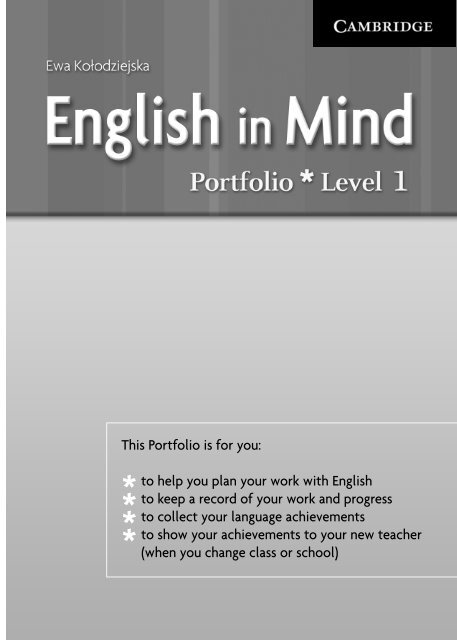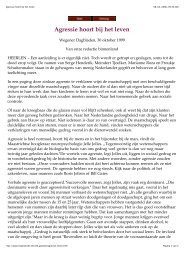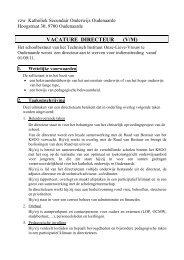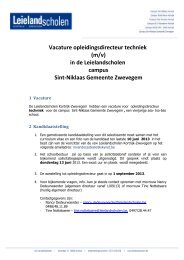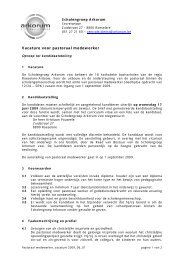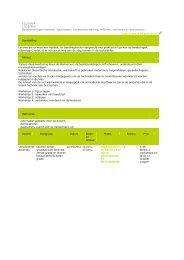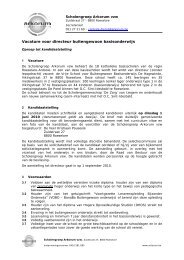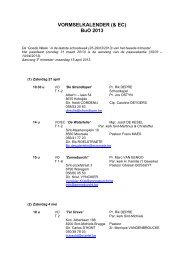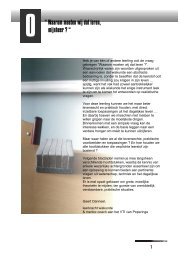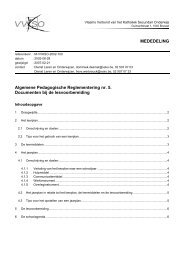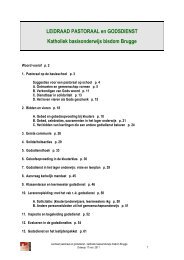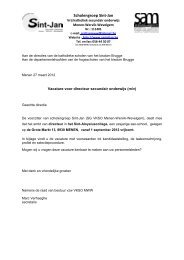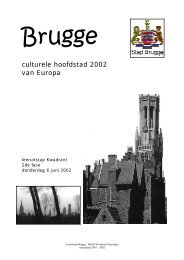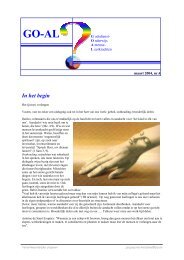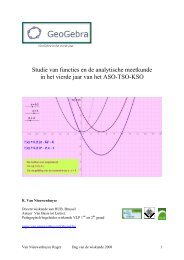This Portfolio is for you: to help you plan your work with English to ...
This Portfolio is for you: to help you plan your work with English to ...
This Portfolio is for you: to help you plan your work with English to ...
You also want an ePaper? Increase the reach of your titles
YUMPU automatically turns print PDFs into web optimized ePapers that Google loves.
<strong>Th<strong>is</strong></strong> <strong>Portfolio</strong> <strong>is</strong> <strong>for</strong> <strong>you</strong>:<strong>to</strong> <strong>help</strong> <strong>you</strong> <strong>plan</strong> <strong>you</strong>r <strong>work</strong> <strong>with</strong> Engl<strong>is</strong>h<strong>to</strong> keep a record of <strong>you</strong>r <strong>work</strong> and progress<strong>to</strong> collect <strong>you</strong>r language achievements<strong>to</strong> show <strong>you</strong>r achievements <strong>to</strong> <strong>you</strong>r new teacher(when <strong>you</strong> change class or school)
Language PassportYourpho<strong>to</strong>First name:Family name:Address:Date of Birth:Born in:Nationality/Nationalities:Mother <strong>to</strong>ngue(s):Other languages:School:Year/Grade:Completed onPHOTOCOPIABLE© Cambridge University Press 2004
Language BiographyI learn Engl<strong>is</strong>h because:I like it.I want <strong>to</strong> travel.I like learning languages.it’s one of my school subjects.I will need it <strong>to</strong> get a job.I need it <strong>for</strong> the Internet.my friends learn it.it’s a world language.I want <strong>to</strong> understand Engl<strong>is</strong>h texts (e.g. songs).I want <strong>to</strong> read books in Engl<strong>is</strong>h.I want <strong>to</strong> watch films and TV programmes in Engl<strong>is</strong>h.I want <strong>to</strong> have (more) friends in other countries.my mother/father wants me <strong>to</strong> learn it.I want <strong>to</strong> take international exams in Engl<strong>is</strong>h.people need <strong>to</strong> speak at least two modern languages nowadays.Other reasons:I learn Engl<strong>is</strong>h:at school.at school, but I also have extra lessons after school.<strong>with</strong> friends from another country in a school exchange.on language courses in Engl<strong>is</strong>h-speaking countries.on holiday (<strong>with</strong> my parents/family/friends) in Engl<strong>is</strong>h-speaking countries.<strong>with</strong> pen friends in my country.<strong>with</strong> pen friends in their country.Other places:I learn Engl<strong>is</strong>h by:reading books in Engl<strong>is</strong>h.neversometimesoftenregularlyl<strong>is</strong>tening <strong>to</strong> songs in Engl<strong>is</strong>h.l<strong>is</strong>tening <strong>to</strong> radio programmes in Engl<strong>is</strong>h.watching TV programmes in Engl<strong>is</strong>h.watching video films or DVDs in the original version <strong>with</strong> subtitles.watching video films or DVDs in the original version.exchanging emails <strong>with</strong> my epals.exchanging letters in Engl<strong>is</strong>h <strong>with</strong> my pen friends from other countries.l<strong>is</strong>tening <strong>to</strong> cassettes and imitating pronunciation.learning vocabulary in different ways.translating songs.learning songs by heart.looking up new words in a dictionary.trying <strong>to</strong> guess the meaning of words from the context.trying <strong>to</strong> guess the meaning of words because they are similar<strong>to</strong> the words in my mother <strong>to</strong>ngue or other languages I learn.using the Internet a lot.chatting on the Internet.Things I like doing in language lessons:Things I am good at:Things I find difficult:© Cambridge University Press 2004 PHOTOCOPIABLE 3
Language Biography Starter SectionLanguage Skillscould bebetterMy opinionwellvery wellcould bebetterMy teacher’sopinionwellvery wellLISTENINGREADINGSPEAKINGUNDERSTANDINGINTERACTION PRESENTATIONI can understand the numbers from 1 <strong>to</strong> 100.I can understand the simple (phone) conversation about personal details.I can understand the simple, short dialogue about my family.I can understand general in<strong>for</strong>mation in the text I have heard on tape.I can select detailed in<strong>for</strong>mation from the text I have heard on tape.I can understand simple texts and conversations when people speak slowly and clearly.I can read a simple <strong>for</strong>m <strong>with</strong> personal details.I can read simple sentences about the present.I can read a short and simple letter.I can use colour words.I can use rooms and furniture words.I can use the names of shops.I can use family words.I can use clothes words.I can use the names of countries and nationalities.I can use the numbers from 1 <strong>to</strong> 100.I can use ordinal numbers (1st, 2nd, 3rd,...).I can use the days of the week, names of the months and seasons.I can introduce myself.I can introduce a friend <strong>to</strong> another person.I can say where I am / somebody <strong>is</strong> from.I can ask about someone’s age.I can say the letters of the Engl<strong>is</strong>h alphabet.I can ask <strong>for</strong> perm<strong>is</strong>sion.I can use the language of time / dates.I can say where things are in the room.I can give instructions.I can say when I don’t understand.I can ask somebody <strong>to</strong> repeat what they said.I can ask and answer simple questions about name, age, address,and telephone number.I can talk about places in my <strong>to</strong>wn/village.I can ask and answer simple questions about the things I have got / someoneelse has got.I can ask and answer simple questions about things I can and I can’t do.I can ask and answer questions about prices.I can ask and answer questions about clothes.4PHOTOCOPIABLE © Cambridge University Press 2004
Starter SectionLanguage SkillsMy opinioncould bebetterwellvery wellcould bebetterMy teacher’sopinionwellvery wellWRITINGI can complete a simple <strong>for</strong>m <strong>with</strong> my personal in<strong>for</strong>mation.I can write dates.I can write simple sentences about places in my <strong>to</strong>wn/village.I can complete a table <strong>with</strong> in<strong>for</strong>mation I have heard on tape.I can write simple sentences about my family / my friend’s family.I can write sentences <strong>with</strong> the in<strong>for</strong>mation presented in a table.I can take simple notes based on a text I have heard on tape.CULTURE IN MINDI know the currency in:I know the currency insome other countries:Countrythe UKthe USAmost European Union countriesCurrencyMy learning goals at the end of Starter Section:I think I need <strong>to</strong> <strong>work</strong> more on:Completed onMy signature© Cambridge University Press 2004 PHOTOCOPIABLE 5
Language Biography Module 1Language Skillscould bebetterMy opinionwellvery wellcould bebetterMy teacher’sopinionwellvery wellLISTENINGREADINGSPEAKINGUNDERSTANDINGINTERACTION PRESENTATIONI can understand general in<strong>for</strong>mation in the text about hobbies.I can select detailed in<strong>for</strong>mation in the text about hobbies.I can understand general in<strong>for</strong>mation in the text about people’s likes and d<strong>is</strong>likes.I can select detailed in<strong>for</strong>mation in the text about people’s likes and d<strong>is</strong>likes.I can understand general in<strong>for</strong>mation in the text about school and school subjects.I can select detailed in<strong>for</strong>mation in the text about school and school subjects.I can understand general in<strong>for</strong>mation in the text about <strong>work</strong> as a volunteer.I can select detailed in<strong>for</strong>mation in the text about <strong>work</strong> as a volunteer.I understand general in<strong>for</strong>mation in the text about healthy life.I can select detailed in<strong>for</strong>mation in the text about healthy life.I can complete a table <strong>with</strong> in<strong>for</strong>mation I have heard on tape.I can understand the simple conversation / the interview about house<strong>work</strong>.I can understand the simple narrative text about hobbies.I can understand the simple letter about hobbies.I can find general in<strong>for</strong>mation in the text about differences between people.I can find general in<strong>for</strong>mation in the text about hobbies.I can find general in<strong>for</strong>mation in the text about school.I can find arguments <strong>for</strong> and against learning at home in the text I have read.I can read the simple email about a family party.I can read a menu.I can use the names of hobbies and interests.I can use the names of school subjects.I can use house<strong>work</strong> words.I can use food words.I can use 5–10 expressions in everyday Engl<strong>is</strong>h.I can compare school timetables.I can describe house<strong>work</strong> duties in my family.I can talk about the things I like and d<strong>is</strong>like.I can talk about hobbies.I can talk about my favourite school subjects.I can ask and answer simple questions about how often someone does something.I can ask and answer simple questions about house<strong>work</strong>.I can order a meal in a restaurant.I can ask and answer simple questions about food and fitness.I can ask and answer simple questions about eating habits.6 PHOTOCOPIABLE © Cambridge University Press 2004
Module 1Language Skillscould bebetterMy opinionwellvery wellcould bebetterMy teacher’sopinionwellvery wellWRITINGI can write simple sentences about things I like, love or hate doing.I can take simple notes about a conversation.I can write a short letter about myself and my hobbies.I can write a short description of my school day.I know how <strong>to</strong> write a l<strong>is</strong>t of arguments <strong>for</strong> and against learning at homeon the bas<strong>is</strong> of the text I have read.I can write a short email about a family party / a birthday party / a goodbye party.I can write a paragraph about my / my partner’s eating habits / favourite food.PROJECT 1I can prepare a simple questionnaire.I can collect data and present it in graphic <strong>for</strong>m.I can make a short presentation (<strong>to</strong> the class).CULTURE IN MINDI can describe a school in Britain.I can compare a day at a Brit<strong>is</strong>h school <strong>to</strong> a day at school in my country.I can describe eating habits in Britain.I can compare Brit<strong>is</strong>h eating habits <strong>with</strong> the eating habits in my country.Interesting things I have learned about other people / other cultures: my notes, comments and observationsThe Helicopter Flying School near Br<strong>is</strong>bane, AustraliaWorking as a volunteerOtherYesNoHave I achieved the learning goals I made at the end of Starter Section?What did I do <strong>to</strong> achieve these goals?My new learning goals at the end of Module 1:I think I need <strong>to</strong> <strong>work</strong> more on:What have I d<strong>is</strong>covered about my learning?Completed onMy signature© Cambridge University Press 2004 PHOTOCOPIABLE 7
Language Biography Module 2Language Skillscould bebetterMy opinionwellvery wellcould bebetterMy teacher’sopinionwellvery wellLISTENINGREADINGSPEAKINGUNDERSTANDINGINTERACTION PRESENTATIONI can understand a simple, short (narrative) text.I can find detailed in<strong>for</strong>mation in the text about a hero I have heard on tape.I can understand the simple presentation about successful people.I can understand the short dialogue / the interview about jobs.I can understand the lyrics of a song.I can understand simple instructions.I can find general in<strong>for</strong>mation in the text about a hero.I can find detailed in<strong>for</strong>mation in the text about a hero.I can find general in<strong>for</strong>mation in the text about friendship.I can find detailed in<strong>for</strong>mation in the text about friendship.I can find general in<strong>for</strong>mation in the text about using mobiles.I can find detailed in<strong>for</strong>mation in the text about using mobiles.I can find general in<strong>for</strong>mation in the text about life in the past.I can find detailed in<strong>for</strong>mation in the text about life in the past.I can find general in<strong>for</strong>mation in the text about dreaming up new ideas.I can find detailed in<strong>for</strong>mation in the text about dreaming up new ideas.I can find general in<strong>for</strong>mation in the text about pop idols.I can find detailed in<strong>for</strong>mation in the text about pop idols.I can understand a text message.I can understand an interview <strong>with</strong> a music band.I can use a bilingual dictionary.I can use 10–20 expressions in everyday Engl<strong>is</strong>h.I can use sport words.I can use job words.I can give a short presentation about my hero.I can describe events in the past.I can describe where things are.I can re-tell a s<strong>to</strong>ry about someone / an event in the past.I can ask and answer simple questions about where and whenI was born / someone else was born.I can ask and answer simple questions about the past.I can talk about sports.I can d<strong>is</strong>cuss in simple words what it means <strong>to</strong> be a successful person.I can talk about things I have <strong>to</strong> do at home.I can talk about a job I would like <strong>to</strong> do.I can maintain a conversation about jobs.I can talk about sleep and dreams.8 PHOTOCOPIABLE © Cambridge University Press 2004
Module 2Language Skillscould bebetterMy opinionwellvery wellcould bebetterMy teacher’sopinionwellvery wellWRITINGPROJECT 2I can prepare in<strong>for</strong>mation about my hero.I can write a short diary entry.I can write an email about a day / an event I enjoyed.I can write a compar<strong>is</strong>on of life in the past and life in the present.I can write a description of someone’s job.I can make simple notes.I can use the Internet <strong>to</strong> find the in<strong>for</strong>mation I need <strong>for</strong> a project.I can find in<strong>for</strong>mation in books and magazines.I can use a library.I can make a short presentation (<strong>to</strong> the class).CULTURE IN MIND Yes NoI can code and decode text messages in Engl<strong>is</strong>h.I can describe the TV programme ‘Pop Idol’.I can compare ‘Pop Idol’ <strong>to</strong> a similar TV programme in my country.I can give arguments <strong>for</strong> and against such programmes.Interesting things I have learned about other people / other cultures: my notes, comments and observationsAn unconventional way <strong>to</strong> protect the environmentFriendship between the nations through the ideaof sport and the OlympicsEveryday life 100 years agoOtherHave I achieved the learning goals I made at the end of Module 1?What did I do <strong>to</strong> achieve these goals?My new learning goals at the end of Module 2:I think I need <strong>to</strong> <strong>work</strong> more on:What have I d<strong>is</strong>covered about my learning?Completed onMy signature© Cambridge University Press 2004 PHOTOCOPIABLE 9
Language Biography Module 3Language Skillscould bebetterMy opinionwellvery wellcould bebetterMy teacher’sopinionwellvery wellLISTENINGREADINGSPEAKINGUNDERSTANDINGINTERACTION PRESENTATIONI can understand the simple dialogue about language learning.I can understand the simple dialogue about holiday <strong>plan</strong>s.I can understand the simple dialogue from a science-fiction s<strong>to</strong>ry.I can understand the simple dialogue about the life of an athlete.I can understand a simple radio interview.I can understand the lyrics of a song.I can select detailed in<strong>for</strong>mation in the text about learning languages I have heard on tape.I can select detailed in<strong>for</strong>mation in the text about the life of an athlete I have heard on tape.I can complete a dialogue <strong>with</strong> in<strong>for</strong>mation I have heard on tape.I can complete a table <strong>with</strong> in<strong>for</strong>mation I have heard on tape.I can understand general ideas in the article about language learning.I can find detailed in<strong>for</strong>mation in the article about language learning.I can understand general ideas in the article about arrangements<strong>for</strong> an adventure holiday.I can find detailed in<strong>for</strong>mation in the article about arrangements <strong>for</strong>an adventure holiday.I can understand general ideas in the article about climbers in the Himalayas.I can find detailed in<strong>for</strong>mation in the article about climbers in the Himalayas.I can understand general ideas in the article about Europeans going <strong>to</strong> live in the USA.I can find detailed in<strong>for</strong>mation in the article about Europeans going <strong>to</strong> live in the USA.I can understand general ideas of the web page about holidays in Ireland.I can find detailed in<strong>for</strong>mation on the web page about holidays in Ireland.I can understand general ideas in the <strong>to</strong>ur<strong>is</strong>t brochure about Ireland.I can find detailed in<strong>for</strong>mation in the <strong>to</strong>ur<strong>is</strong>t brochure about Ireland.I can understand general ideas in the dialogue from a science-fiction s<strong>to</strong>ry.I can find detailed in<strong>for</strong>mation in the dialogue from a science-fiction s<strong>to</strong>ry.I understand the meaning of some words in context.I can use a bilingual dictionary.I can use holiday words.I can use weather words.I can use 20–30 expressions in everyday Engl<strong>is</strong>h.I can compare and contrast things.I can make predictions about my future life.I can describe my habits.I can re-tell a s<strong>to</strong>ry of someone’s life.I can talk about future arrangements.I can talk about my holiday <strong>plan</strong>s.I can ask and answer simple questions about the future.I can ask and answer simple questions about everyday habits.I can act out a dialogue.10 PHOTOCOPIABLE © Cambridge University Press 2004
Module 3Language Skillscould bebetterMy opinionwellvery wellcould bebetterMy teacher’sopinionwellvery wellWRITINGPROJECT 3I can write a simple email about a language course.I can write a simple email giving advice <strong>to</strong> a friend.I can write a simple letter about a language course.I can write a simple, short magazine article about my life in the future.I can take simple notes.I can use the Internet <strong>to</strong> find the in<strong>for</strong>mation I need <strong>for</strong> a project.I can find in<strong>for</strong>mation in books and magazines.I can use a library.I can make a short presentation (<strong>to</strong> the class).CULTURE IN MIND Yes NoI understand the importance of knowing more than one language / learning languages.I can give advice about language learning.I can present arguments <strong>for</strong> v<strong>is</strong>iting Ireland.I can present arguments <strong>for</strong> and against v<strong>is</strong>iting / going on activity holidays in Hawaii.I can talk about migrants <strong>to</strong> the ‘new world’, America.Interesting things I have learned about other people / other cultures: my notes, comments and observationsThe fascinating way that South American Indians learn other languagesSouth American Indian h<strong>is</strong><strong>to</strong>ry, cus<strong>to</strong>ms and traditionsInteresting places in IrelandH<strong>is</strong><strong>to</strong>ry, cus<strong>to</strong>ms, traditions and interesting places in HawaiiNew AmericansOtherHave I achieved the learning goals I made at the end of Module 2?What did I do <strong>to</strong> achieve these goals?My new learning goals at the end of Module 3.I think I need <strong>to</strong> <strong>work</strong> more on:What have I d<strong>is</strong>covered about my learning?Completed onMy signature© Cambridge University Press 2004 PHOTOCOPIABLE 11
Language Biography Module 4Language Skillscould bebetterMy opinionwellvery wellcould bebetterMy teacher’sopinionwellvery wellLISTENINGREADINGSPEAKINGUNDERSTANDINGINTERACTION PRESENTATIONI can understand the short dialogue about New Year resolutions.I can select detailed in<strong>for</strong>mation in the dialogue about New Year resolutions.I can understand the short dialogue about a teenager’s unlucky day.I can select detailed in<strong>for</strong>mation in the dialogue about a teenager’s unlucky day.I can understand the short dialogue about a birthday party.I can select detailed in<strong>for</strong>mation in the dialogue about a birthday party.I can understand the short dialogue about cus<strong>to</strong>ms in different countries.I can select detailed in<strong>for</strong>mation in the dialogue about cus<strong>to</strong>ms in different countries.I can understand the short dialogue about bravery and r<strong>is</strong>k.I can select detailed in<strong>for</strong>mation in the dialogue about bravery and r<strong>is</strong>k.I can understand the interview about strange pets.I can understand general ideas in the short text about New Year.I can find detailed in<strong>for</strong>mation in the short text about New Year.I can understand general ideas in the short text about amazing record breakers.I can find detailed in<strong>for</strong>mation in the short text about amazing record breakers.I can understand general ideas in the dialogue about obligations.I can find detailed in<strong>for</strong>mation in the dialogue about obligations.I can understand general ideas in the brochure <strong>with</strong> tips on v<strong>is</strong>iting Britain.I can find detailed in<strong>for</strong>mation in the brochure <strong>with</strong> tips on v<strong>is</strong>iting Britain.I can understand general ideas in the s<strong>to</strong>ry about gorillas.I can find detailed in<strong>for</strong>mation in the s<strong>to</strong>ry about gorillas.I can understand general ideas in the article about a record breaker.I can find detailed in<strong>for</strong>mation in the article about a record breaker.I can understand general ideas in the article about Elv<strong>is</strong> Presley fans.I can find detailed in<strong>for</strong>mation in the article about Elv<strong>is</strong> Presley fans.I can guess the meaning of some words from the context.I can use animal words.I can use 25–35 expressions in everyday Engl<strong>is</strong>h.I can express my opinion about a person.I can give advice.I can give recommendations.I can describe what people/things are like.I can describe what people/things were like.I can tell in simple words a s<strong>to</strong>ry about a brave person.I can talk about future intentions and predictions.I can talk about future possibilities.I can talk about experiences in my life (e.g. an unlucky day).I can ask and answer simple questions about people and things.I can ask and answer simple questions about things people have done in their lives.12 PHOTOCOPIABLE © Cambridge University Press 2004
Module 4Language Skillscould bebetterMy opinionwellvery wellcould bebetterMy teacher’sopinionwellvery wellWRITINGI can write an email / a letter about my last New Year’s Eve.I can write an email / a letter <strong>with</strong> tips about my country.I can write an email / a letter about a v<strong>is</strong>it <strong>to</strong> Los Angeles.I can write the s<strong>to</strong>ry of a film or a book.PROJECT 4I can take simple notes.I can use the Internet <strong>to</strong> find the in<strong>for</strong>mation I need <strong>for</strong> a project.I can find in<strong>for</strong>mation in books and magazines.I can use a library.I can give a short talk <strong>to</strong> an audience.I can answer simple questions from an audience about the <strong>to</strong>pic after the talk.CULTURE IN MIND Yes NoI can describe New Year’s cus<strong>to</strong>ms and traditions in Britain and Scotland.I can compare the Brit<strong>is</strong>h New Year cus<strong>to</strong>ms <strong>with</strong> the New Year cus<strong>to</strong>ms in my country.I can describe some interesting Brit<strong>is</strong>h cus<strong>to</strong>ms and compare <strong>with</strong> the cus<strong>to</strong>ms in similar contexts in my country.I can describe some interesting cus<strong>to</strong>ms from different countries.Interesting things I have learned about other people / other cultures: my notes, comments and observationsElv<strong>is</strong> PresleyOtherHave I achieved the learning goals I made at the end of Module 3 ?What did I do <strong>to</strong> achieve these goals?My new learning goals <strong>for</strong> the next year:I think I need <strong>to</strong> <strong>work</strong> more on:What have I d<strong>is</strong>covered about my learning?Completed onMy signature© Cambridge University Press 2004 PHOTOCOPIABLE 13
DossierMy Diary of AchievementsDate Place Type of Language Achievement 1Signatureof <strong>you</strong>r teacheror the stampof an institution1 For example:a school v<strong>is</strong>it abroad;hosting a colleague from a partner school;a (holiday) stay abroad;diplomas, certificates, confirmations;participation in a language project;regular email / letter exchange <strong>with</strong> <strong>you</strong>r friend in another country;extra activities / Engl<strong>is</strong>h club / a language course in <strong>you</strong>r country;participation in a Brit<strong>is</strong>h Council competition;Engl<strong>is</strong>h Language Competition in <strong>you</strong>r country.Collect all <strong>you</strong>r achievements and <strong>you</strong>r original documents in a file.14 PHOTOCOPIABLE © Cambridge University Press 2004
DossierMake a Collection of Your Own WorkTaskDateEngl<strong>is</strong>h in Mind 1: For Your <strong>Portfolio</strong>Module 1Here and nowModule 2Follow<strong>you</strong>r dreamsModule 3Far and wideModule 4The thingspeople do!PROJECT 1PROJECT 2PROJECT 3PROJECT 4A letter <strong>to</strong> a friendA description of my usual school dayAn email <strong>to</strong> a friendA description of my partner / friendA description of my hero; A poster about my heroAn email <strong>to</strong> a penfriendA description of a jobA simple narrative textA simple narrative text or a letter / an email <strong>to</strong> an Engl<strong>is</strong>h-speaking personAn article <strong>for</strong> a school magazineA description of my life in the futureAn email <strong>with</strong> adviceAn email about traditions of New YearA simple short text about a film, a book or a TV programmeA letter <strong>to</strong> a friendA class surveyA presentation on a successful personA poster about the futureA talk on an event that happened th<strong>is</strong> yearMy other <strong>work</strong>Date© Cambridge University Press 2004 PHOTOCOPIABLE 15
My learning diaryDate:from<strong>to</strong>TopicsIn the past week / month / term I have learned:New vocabularyL<strong>is</strong>teningReadingSpeakingPresentationInteractionWritingI now know about:I need <strong>to</strong> <strong>work</strong> more on:My next learning goal:Date:* It <strong>is</strong> recommended <strong>to</strong> do th<strong>is</strong> kind of self-assessment at least twice a year.PHOTOCOPIABLEhttp://cambridge.org/elt/engl<strong>is</strong>hinmind


